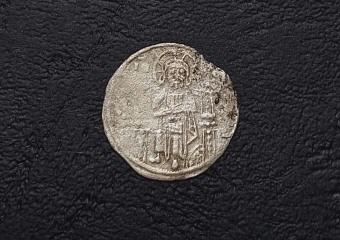This year Mesni i Sirni Zagovezni will be celebrated on 27.02 and 06.03.
[img right]uploads/old/images/misc/P2250015.jpg[/img][justify]Mesni Zagovezni is a moveable feast in the Bulgarian Orthodox calendar. This feast’s date is not fixed in the civil calendar and varies depending on the date of Easter. Mesni Zagovezni is always celebrated on a Sunday eight weeks before Easter. This year Mesni Zagovezni will be celebrated on 27.02, which means Sirni Zagovezni will be on 06.03. Sirni Zagovezni is celebrated seven weeks before Easter. The evening of this feast is spent with members of close families. Until dinner time the custom for “forgiveness” has to be completed – the younger kiss hands of an older, in such way seek and receive forgiveness for their mistakes and insults.
[url=index.php?tab=ethno&lang=[curlang]&page=encyc&enc=rituals&eid=70]Learn more about the customs related to Mesni and Sirni Zagovezni.[/url]
On Sunday between Mesni and Sirni Zagovezni, one of the most vivid traditions is the kukeri (mummers') games. Participants in these games are only bachelors and young men. [/justify][shrink]
Every group of kukeri (mummers) has chosen to play a special character, also specially made clothing and own accessories. Other names for kukeri are "babuberi", "starci (elders)", "dzhamalari", "surati". The young men are dressed in goat skins, and their faces are hidden beneath whimsical masks, colourful decorated with feathers, beads, seeds, bits of glass, mirrors and more. Usually they personify strange and fantastic animals and birds, which would horrify the audience.
[img right src="resources/ritualimages/2_2.jpg"][/img]The first main stage in the custom kukeri is their ritual walk through the whole village. Mummers visit each house. On the road and in every yard they recreate various scenes, jump high as possible by the sounds of music. It is believed that in this way they magically stimulate the lush growth of crops and insure a rich harvest. Farmers welcome the group of kukeri and give them eggs, flour, corn and others.
Custom’s highlight is the symbolic ritual plowing and sowing, which is usually performed at the village square in front of everyone. The “king” or “bride” harness one of the kukeri group in a wooden plough and he tills three furrow in a circle, then he imitates sowing and utters a blessing for health, prosperity and fertility. At that time the other kukeri play around the ritual place by jumping high upwards - the higher the jump, the richer will be the harvest. At the end of the ritual sowing, the kuker pulling the plough falls dead on the ground. The remaining participants rush to him, crying load, beating him until he is revived. With this the village celebration begins.
[url=index.php?tab=ethno&lang=[curlang]&page=encyc&enc=rituals&eid=55]Learn more about the custom Kukerovden[/url]
Krasimira Dubarova


Comments
comments powered by Disqus